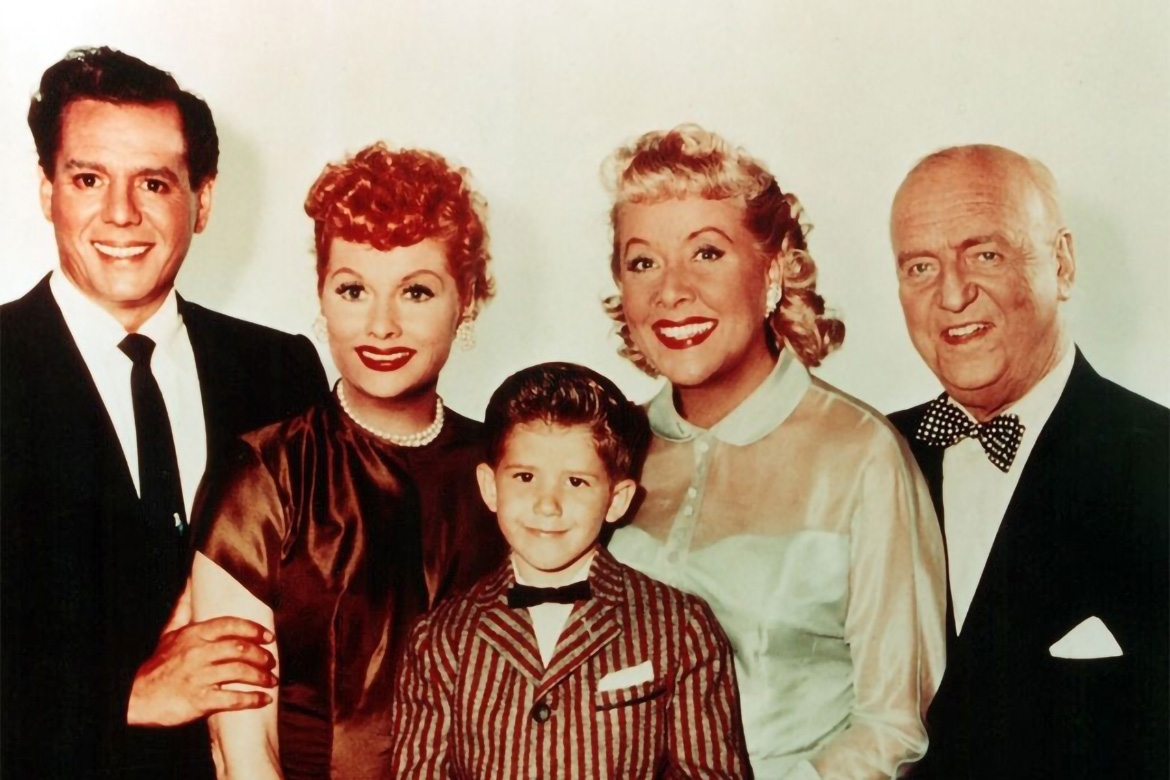Was I Love Lucy Ahead of Its Time?
Journalist Raj Tawney learned about diversity on I Love Lucy.
As this year's awards season ramps up, it may appear that on-screen representation is finally starting to reflect the various faces and voices that make up our diverse society.
While it rightfully feels like a score for the modern age, it's also important to look back and remember individuals from previous generations who opened the door. When examining Hollywood's past, searching for traces of realism may sometimes prove difficult. But there's a TV show that hasn't left the airwaves, and the American zeitgeist, since it premiered almost seven decades ago and its impact has stretched beyond entertainment value.
As a kid growing up in New York in the '90s, my exposure to diversity on television was largely attributed to watching I Love Lucy on Nick At Nite with my family. The red-blooded (and headed) American Lucille Ball and her Cuban-immigrant husband Desi Arnaz were not only revolutionary in 1950s society, but their legacy remained important to my own upbringing four decades later.
Lucy and Ricky's New York City household was not unlike my own. I was also raised by a white mother and a darker-skinned father who had an accent and mispronounced words. "I'm just like Little Ricky!", I'd shout to my parents while the TV was on. I even asked them to buy me a clip-on bowtie so I could walk around the house looking like him.
Although my father was an immigrant from India and my mother was of Puerto Rican and Italian descent; the idea of belonging to a flavorful, multiethnic household, just like the Ricardos, gave me a reason to feel proud of my own mixed identity.
Even their close friendship with older couple Fred and Ethel Mertz felt like validation that audiences needed to accept Lucy and Ricky's marriage.
Since they approved, maybe the rest of the country could, too. For my family, I often felt like an outsider in our white, suburban neighborhood. But I found comfort in believing my neighbors could be as accepting as the Mertzes and I developed friendships with older residents by reciting jokes I heard in I Love Lucy episodes. They found me adorable, just like Little Ricky.
We take the show for granted today, as if Desi Arnaz was a no-brainer to play opposite Lucille Ball. But in 1950, Ball fought to have Arnaz, her real-life husband, to play the role of her fictional spouse on I Love Lucy — the TV adaptation of her popular radio program My Favorite Husband, replacing actor Richard Denning, who voiced Ball's husband on radio. Ball demanded they cast Arnaz or she wouldn't do the show at all.
At first, CBS was apprehensive about the choice of Arnaz because they didn't think the public would believe a white American woman would marry a Hispanic immigrant. Ball used her star power to insist they cast Arnaz as her husband. In order to convince executives, she and Arnaz, along with writer/producer Jess Oppenheimer, created a stage version of the show and performed it live in front of an audience at a local theater.
The feedback was outstanding and CBS had no choice but to give in. The show premiered in October 1951 and became the biggest hit of its time and beyond. There were no backlashes or protests — just love.
Arnaz proved his worth, of course. A seasoned entertainer and skilled comedian himself, he added his own brand of flair and wit to Ricky Ricardo, as well as his Cuban identity.
Poking fun at his non-Americanism was part of relieving the audience of any prejudices that may have existed inside of their heads. Not only talented, Arnaz was also a technical wizard, credited for helping to create the multi-camera production that sitcoms still use today, as well as using film instead of kinescope — the reason why I Love Lucy still looks crystal clear to this day.
In the years during the show's run and following its completion, Ball and Arnaz starred in two films together (The Long, Long Trailer and Forever, Darling) formed the powerhouse Desilu Productions, purchased RKO Studios, filed for divorce, Ball bought out Arnaz, and the two would individually produce more content for American viewers; but nothing nearly as memorable as I Love Lucy.
Nearly 70 years later, American households have become more diverse yet reality doesn't reflect the characters presented on our screens. The most recent U.S. Census Bureau report states that the "seven types of interracial/interethnic married-couple combinations make up 95.1 percent of all such married couples. The largest of these is non-Hispanic whites married to Hispanics, which increased in 43.2 percent of counties."
While I'm grateful for I Love Lucy's lasting impression on my view of the American family, I hope that when I have children of my own, I'll be able to show them more examples of a modern family than just Modern Family.
Raj Tawney is a journalist in New York with recent contributions to the New York Daily News, Newsday, Miami Herald, The Desert Sun, The Huffington Post, Long Island Press, and Medium. He writes mostly about history, culture, humans, and relationships.







